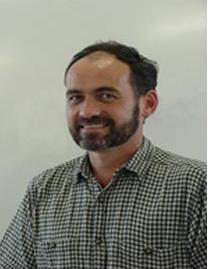You are here
Home › TLRI research › Research completed › Post school sector › An exploration of the pedagogies employed to integrate knowledge in work-integrated learning in New Zealand tertiary educational institutionsAn exploration of the pedagogies employed to integrate knowledge in work-integrated learning in New Zealand tertiary educational institutions
Project Description
Work-integrated learning or co-operative education is an educational strategy in which students undertake conventional academic learning at a higher educational institution combined with some time spent in a workplace relevant to their programme of study and career aims (Groenewald, 2004).
A key aspect of work-integrated learning is the notion that it entails the integration of knowledge and skills gained in the higher education institution and in the workplace. This has two features—the student takes what he or she has learnt on campus into the workplace when going on a work placement, and likewise what they learn in the workplace becomes related to, or incorporated into, the next phase of academic learning when the student returns to study after completing a work placement.
Research question
This TLRI project focused on learning in work-integrated learning programmes in higher education institutions. We sought to investigate the question: What pedagogical approaches are used in New Zealand work-integrated learning/co-operative education programmes in terms of integration of student knowledge, and what impact do these have on student learning?
 Project Contact
Project Contact
Professor Richard Coll
Science and Engineering
University of Waikato
Email:rcoll@waikato.ac.nz
Outputs
-
 Coll, R. K., Eames, C., Paku, L., et al. (2009). An exploration of the pedagogies employed to integrate knowledge in work-integrated learning in New Zealand higher education institutions. Summary.Wellington: Teaching and Learning Research Initiative. -
pdf -
70.7 KB
Coll, R. K., Eames, C., Paku, L., et al. (2009). An exploration of the pedagogies employed to integrate knowledge in work-integrated learning in New Zealand higher education institutions. Summary.Wellington: Teaching and Learning Research Initiative. -
pdf -
70.7 KB -
 Coll, R. K., Eames, C., Paku, L., et al. (2009). An exploration of the pedagogies employed to integrate knowledge in work-integrated learning in New Zealand higher education institutions. Full Report.Wellington: Teaching and Learning Research Initiative. -
pdf -
747.44 KB
Coll, R. K., Eames, C., Paku, L., et al. (2009). An exploration of the pedagogies employed to integrate knowledge in work-integrated learning in New Zealand higher education institutions. Full Report.Wellington: Teaching and Learning Research Initiative. -
pdf -
747.44 KB
TLRI research
Recently published reports
Pepe meamea in the spirit of the collective: Embedding Samoan indigenous philosophy in ECE for Samoan children under two
Jacoba MatapoOn2Science - Multiple affordances for learning through participation in online citizen science
Dr Cathal Doyle and Dr Cathy BunttingLearning From Each Other: Enhancing Pacific Education through People, Concept and Culture-focused Inquiry
Dr Cherie Chu-Fuluifaga and Dr Martyn ReynoldsMore projects like this
- Understanding and enhancing learning communities in tertiary education in science and engineering
- Refugee-background students in Aotearoa: Supporting successful secondary to tertiary education transitions
- Investigating teachers’ pedagogical approaches in environmental education that promote students’ action competence

